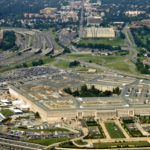
A new report from the Center for the American Progress is calling for the Biden administration to bolster the State Department’s role in the U.S. security assistance program, to include transfering $7 billion in associated funding from the Pentagon. The report calls the current return on investment for Pentagon-led security assistance efforts “limited, inconsistent, and not strategic” and advocates for the State Department to take the lead in organizing foreign military aid initiatives. “U.S. security assistance is broken and in…

 By
By 










